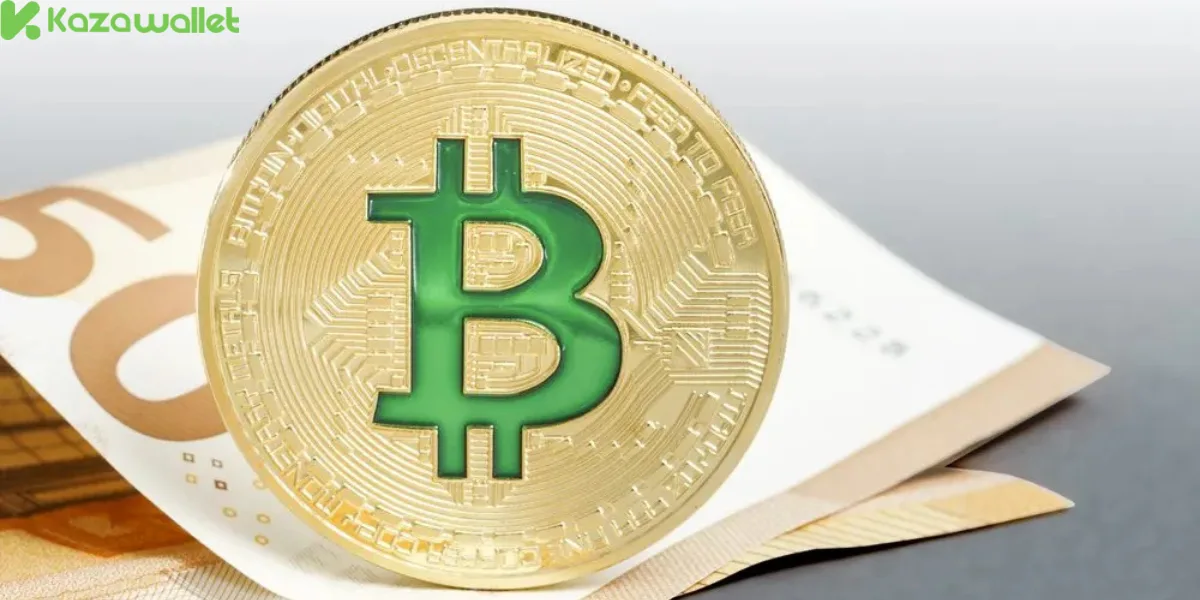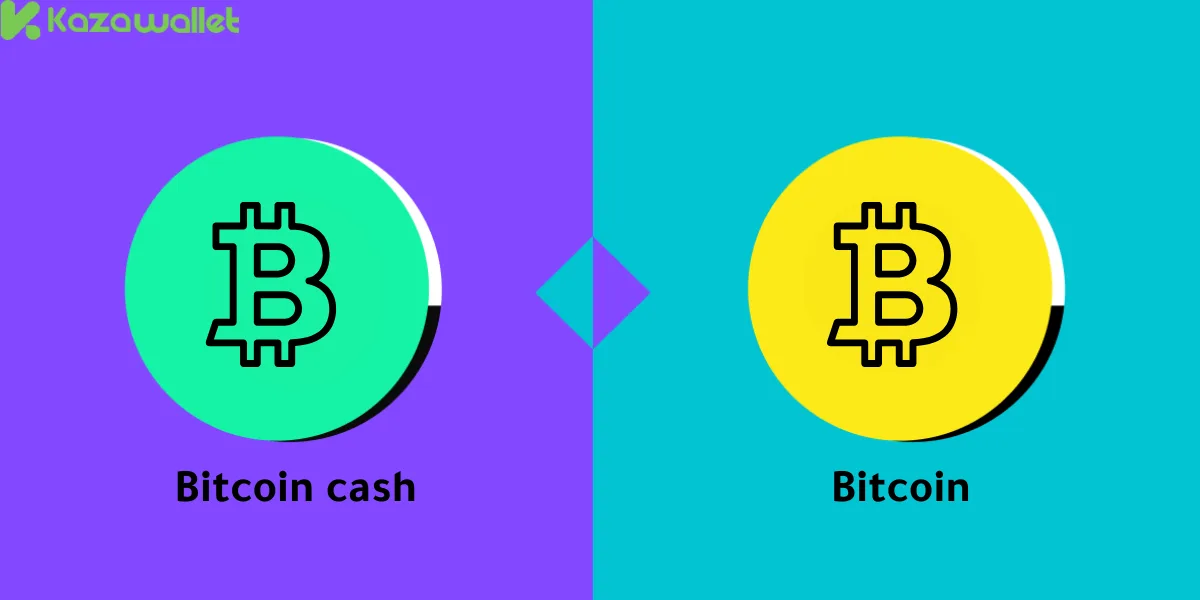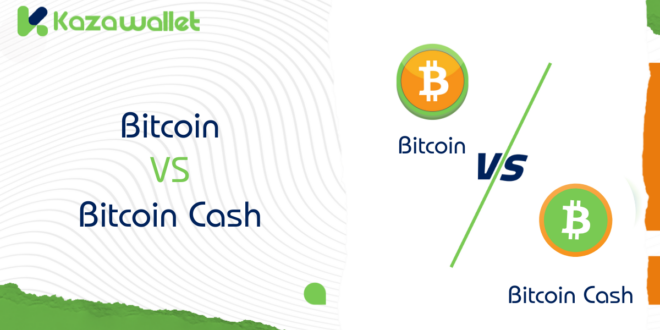Since the launch of Bitcoin as the first decentralized currency, this technology has been the force behind the economics of the world.
Bitcoin isn’t the only option available, however; others like Bitcoin Cash have emerged to meet different needs. Is Bitcoin Cash an upgrade of Bitcoin, however? Or is it a completely different vision for the future of currencies?
In this article, we will explore Bitcoin vs Bitcoin Cash, the differences between Bitcoin and Bitcoin Cash, how the two currencies differ, and what differentiates them from each other.
What is Bitcoin?

Bitcoin is the first ever digital currency, the work of an anonymous individual or group of people by the name of “Satoshi Nakamoto.” The idea behind Bitcoin was to create a system of currency independent of the influence of central banks and traditional financial systems.
Bitcoin operates on blockchain technology, an unbreakable digital ledger in which all transactions are made transparent and distributed in nature.
This is what differentiates Bitcoin, as it isn’t just a payment system but a digital asset attracting much interest. In the past few years, it has become a type of “digital gold,” a value reserve in the eyes of many and not just a means of everyday transactions.
However, Bitcoin also presents significant challenges, most notably slow processing times and costly transfer fees, and some have searched for alternatives as a consequence.
For example, when a purchase in Bitcoin is made, it may take hours or minutes to confirm the transaction, especially if the network is congested. Transaction fees are also prohibitively costly at times of heavy demand, so Bitcoin is an impractical choice for small purchases.
Buy Bitcoin in Syria via Kazawallet: A Complete Guide
What is Bitcoin Cash?

Bitcoin Cash emerged in 2017 as a modified version of the original Bitcoin. This currency resulted from a Bitcoin network fork where developers could not agree on how to upgrade the network in order to process more transactions at a cheaper and faster rate.
The primary purpose of creating Bitcoin Cash was to address the slow and costly issues of the original Bitcoin.
Bitcoin Cash increased the size of its blockchain so it could process a larger number of transactions simultaneously. This made it more useful for daily use as a payment system because people could use it to make small purchases without incurring huge fees and waiting for an extended period of time.
For example, a payment on the Bitcoin Cash network can be completed in a few minutes and at very low fees compared to Bitcoin. This makes it an attractive option for individuals seeking an effective and fast daily payment option.
Bitcoin vs Bitcoin Cash: Difference Between Bitcoin and Bitcoin Cash

Although Bitcoin and Bitcoin Cash are cryptocurrencies based on blockchain technology, there are a number of differences between them. Let us discuss the differences between Bitcoin and Bitcoin cash:
Major Purpose
While Bitcoin is a “store of value” and an investment for the long term, Bitcoin Cash is a daily-use payment system by nature. These differences in purpose show a sharp divergence in philosophies between the currencies. Bitcoin is an investment vehicle and an inflation hedge, and Bitcoin Cash is an everyday practical solution.
Stability
Bitcoin enjoys a higher level of stability compared to Bitcoin Cash. This is because Bitcoin boasts a longer and more established history and, as such, is a safer gamble for institutional investors. Bitcoin Cash is volatile because it has a small user base and low adoption rate. This volatility can be either positive or negative, as it can lead to massive investing opportunities but at a higher risk as well.
Technology
Bitcoin Cash‘s technology revolves around increasing the size of the blocks to allow it to process multiple transactions simultaneously. Bitcoin relies on SegWit and the Lightning Network to improve transaction efficiency and speed.
For example, the Lightning Network reduces the load on Bitcoin’s original blockchain by executing transactions outside of it, thus making them less expensive and faster. However, such technology is still in its infancy and may take years to evolve to its ultimate potential.
Supply and Market Capitalization
As there are only 21 million units of each currency available, the market cap of Bitcoin dwarfs Bitcoin Cash because it is so much more popular and liquid. This means Bitcoin is simpler to buy, sell, and invest in compared to Bitcoin Cash.
Use
Bitcoin exists predominantly as an inflation hedge or an investment vehicle. Bitcoin Cash is more suitable for daily use in small payments because it has cheaper and faster processing times. For example, Bitcoin Cash can be used to buy a cup of coffee or pay a small bill, but Bitcoin might be impractical for such purposes.
Decentral
Although they are decentralized in nature, Bitcoin can be said to be more decentralized due to its bigger and more dispersed network size. Bitcoin Cash falls short in this regard as it has a small user base and consequently might struggle to maintain the same level of decentralization.
Acceptance and Adoption
Bitcoin is still the most popular cryptocurrency and is supported by many big corporations and even governments. Bitcoin Cash still lacks such widespread adoption and support. For example, you can use Bitcoin to purchase products from corporations like Microsoft and Tesla (previously), but support for Bitcoin Cash is less common.
Other than the aforementioned, Bitcoin Cash also offers other features, such as the ability to add text messages in transactions thus making it functionally more versatile. Nevertheless, Bitcoin remains more popular and secure, as it has had years of market history behind it.
Bitcoin vs Bitcoin Cash: Risks Involved

Price Volatility
One of the greatest risks in investing in either currency lies in their volatility in value. They fluctuate rapidly in a very short period of time and are thus risky investments for those seeking financial security. For example, the value of a currency may appreciate by 50% in a given week and depreciate by the same percentage the following week.
Cybersecurity threats
Although blockchain technology itself is highly secure, digital currency wallets can be susceptible to hacking if misused. Losing access to a wallet or having funds stolen by cybercriminals is a very real risk to consider.
Regulatory Risks
As the government focuses increasingly on digital currencies, Bitcoin and Bitcoin Cash could be regulated with new limits or banned in different countries. For example, some countries have imposed strict limitations on the purchase and sale of digital currencies or banned them altogether, affecting their value and use.
Forking Ris
Finally, the risk of forking cannot be dismissed, as differences in developers have the ability to lead to new forks and affect the value and stability of the currency. For example, the Bitcoin bifurcation into Bitcoin Cash itself resulted from differences among developers regarding how to improve the network.
In the End:
It seems the age of digital currencies is in its infancy, and we are experiencing rapid and unexpected changes.
Whether you view Bitcoin as an investment for the long term or Bitcoin Cash as an efficient payment system, the two currencies are building a new financial system.
Although Bitcoin and Bitcoin Cash have promising outlooks, we need to remain realistic as far as the risks are concerned. Price volatility, regulatory risks, and even forks in cryptocurrency communities are concerns we can’t ignore.
And don’t forget how much simpler it is to work with cryptocurrencies like USDC, Tron, Bitcoin, and others thanks to Kazawallet. With the wallet, you enjoy the convenience of buying, storing, depositing, and withdrawing cryptocurrencies in an easy and secure process.
 Blog Kazawallet
Blog Kazawallet




